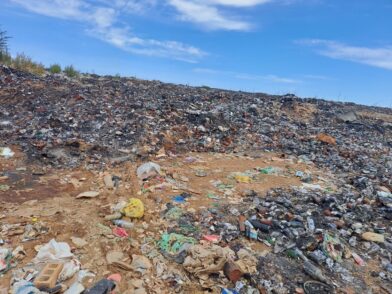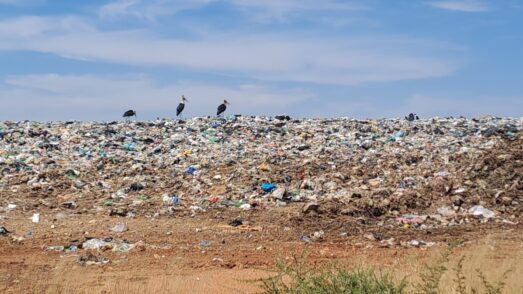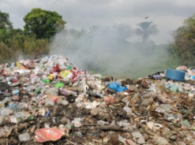Botswana Tackles Wastewater Treatment and Solid Waste Management Collection Issues Through an EPIC Partnership with the University of Botswana
Metrics
Community
GaboroneCommunity Size
246,325University
University of BotswanaProgram
ProgramYears
2024-2025Status
In progressCase Type
Project StoriesSchool Size
15484Focus Areas
Water ManagementDiscipline
SustainabilityRegion
AfricaSustainable Development Goals
6 Clean Water and SanitationIn November 2020, the University of Botswana and the Gaborone City Council signed a Memorandum of Understanding to share and exchange knowledge, resources, and information. Using the EPIC Model as their guide, the City Council and the University decided to work together to achieve development in multiple areas including waste management, environmental sustainability, and climate change. With funding to deploy the EPIC partnership framework, the University of Botswana and the Gaborone City Council will collaborate to focus on issues such as wastewater treatment and solid waste collection. The project will start in January 2024 and run until January 2025.
Currently, Botswana is dealing with a great deal of water scarcity and the city of Gaborone has found itself with a very limited water supply. Currently, the water supply deficit is met by long-distance water transfers through two connected pipelines known as the North-South Water Carrier spanning over 400 km. To alleviate demand on potable water, wastewater is treated, and the effluent is used in areas that would have typically used potable water such as landscaping including the watering of gardens and golf courses. Wastewater effluent is also used to irrigate various horticulture crops. This is contributing to food security and nutritional health.
Along with wastewater treatment, solid waste collection is challenging in Gaborone due to the shortage of collection vehicles and the landfill being about 40 kilometers outside of the city. These circumstances limit waste trucks to only one to two waste collection trips per day. This leads to infrequent waste collection resulting in some citizens illegally dumping waste in and around the city. Poor or lack of separation of waste leads to an increased risk of fire at the landfill due to inflammables present in waste. Additionally, leachate from the landfill sometimes spills or overflows from the leachate pond/dam. This is problematic because the landfill is situated near a stream that leads into the village Gamodubu.

Recently, a fire broke out at the landfill causing it to be closed for about 4 weeks. The cause of the fire has not been established although it is suspected that some inflammable waste was dumped at the landfill. To avoid these dangerous situations, the public must be educated on how to separate waste properly before its collection.
To overcome these difficulties, the city is planning to promote sustainability by endorsing the three R’s: reduce, reuse, and recycle. This will encourage economic empowerment and better waste management. The City Council is also hoping to collect biogas by promoting sludge digestion within waste management facilities. Sludge digestion is a biological process that decomposes organic solids into stable substances. The biogas produced from this process can be recovered and reused to produce electricity and heating leading to affordable clean energy.

Further, there are six undergraduate students specifically investigating issues of concerns at multiple different landfills. These projects include researching leachate contamination on herbaceous and woody plants, assessing the presence of heavy metals in groundwater at the Gamodubu Landfill, and the presence of macroinvertebrates in the leachate dam at the Gamodubu Landfill. Additionally, students are studying the contamination by Gamodubu Regional Landfill leachate on soil fauna and the diversity of birds at Gamodubu Regional Landfill. There is also a postgraduate student who is working on microscopic and molecular identification of gastrointestinal parasites in wastewater.
By focusing on the designated project areas wastewater treatment and solid waste management, the City Council of Gaborone Botswana will take advantage of the EPIC model and use resources provided by the University of Botswana to create cleaner water and a cleaner more sustainable city. The EPIC Consultancy funds will be used to fund both areas of the project and will enhance the quality of education for students and, ideally, generate jobs for low-income individuals.
This project is currently in progress.


